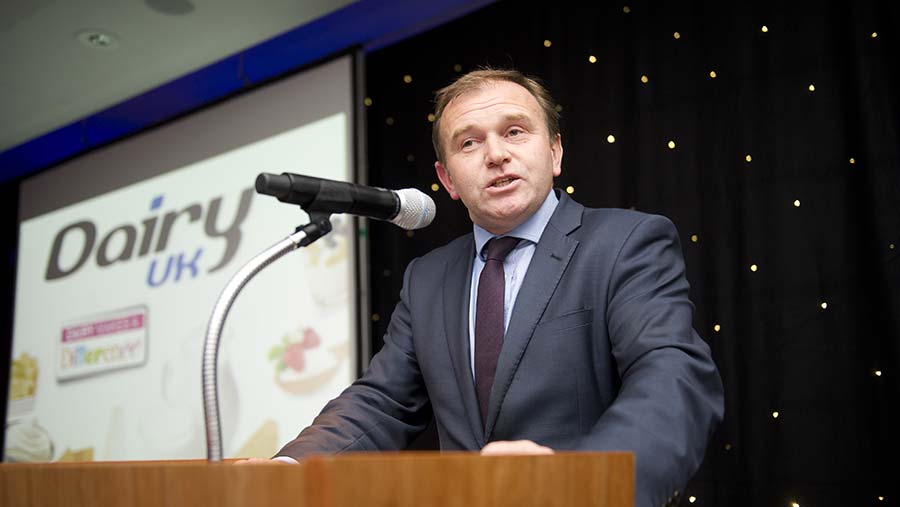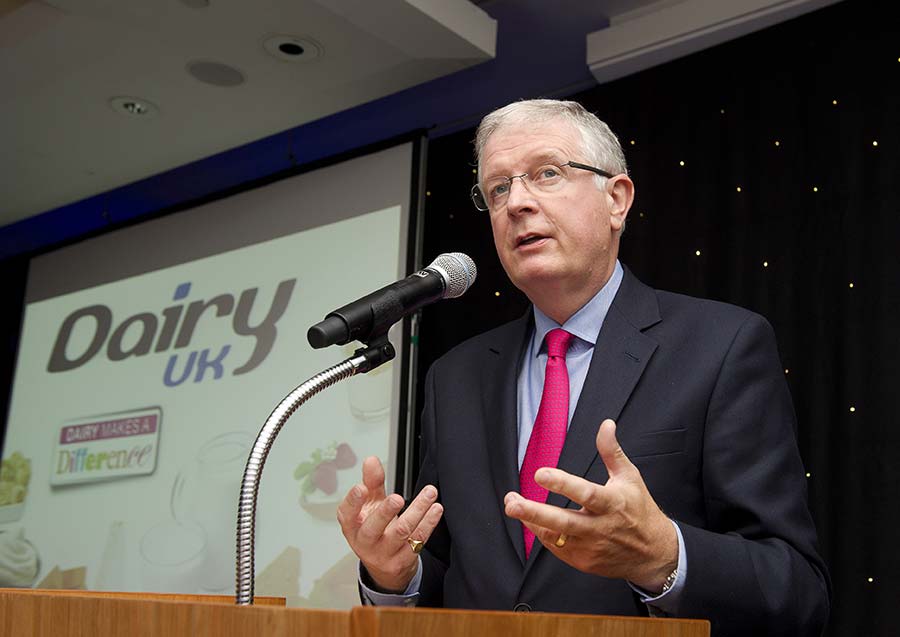George Eustice sets out principles for a British farming policy

The UK’s recent decision to leave the European Union gives policy-makers the chance to start from a clean sheet when devising the next farm policy.
Addressing the Dairy UK annual dinner on Wednesday night (29 June), Defra farm minister George Eustice said membership of the EU had just been a “passing phase in our nation’s history”.
See also: More news and analysis from the EU referendum
“It is an idea whose raison d’etre has come and gone,” he said, adding it was “time to push ourselves out of the comfort zone and think about whether there is a better way of doing things”.
“On farm policy, this will give a new prime minister and a new government the opportunity to start with a clean sheet, rather than trying to reform the CAP we’ve got,” he said.
“We can think things through from first principles and ask how we can best deliver for our environment, what is the right policy mix that will enable us to manage risk and volatility, how can we promote science and technology to deliver profitable farming.”
Crop insurance
Mr Eustice said he had already looked at the Canadian model of crop insurance and was interested in taking a much more holistic approach to environmental management.
He added that Defra was also doing a huge amount of work to try to establish a new futures market in dairy, “so the next time there is a downturn, we are better placed to deal with it”.
“The NGOs and farming unions I talked to actually got quite engaged in all this,” he said.
“Once you get over the initial shock of this [Brexit] decision and talk about what is possible, there is actually a great deal of excitement around. It is a really exhilarating time to be in Defra, trying to plot a new course for farm policy in this country.”
Dairy promotion to take a hit
Leaving the EU will put a large hole in the funding for dairy promotion and the UK government must help plug the gap, Dairy UK chairman David Dobbin told the dinner.
“Over the years, this industry has benefited from EU funding for the promotion of agricultural products,” he said.
“We were delighted when earlier this year AHDB Dairy lent their financial support, along with ours, to promote British dairy products and in doing so, Dairy UK, the Dairy Council and AHDB were able to lever EU support for campaigns.

David Dobbin
“But as the UK is no longer a member [of the EU], we are going to lose significant funding for promotion and I hope Defra steps up to the plate. I hope the promises we heard in the Brexit campaign are honoured.
“We need support because we are going to have to compete against a Europe that has all the support and subsidies we currently enjoy.”
The future success of the dairy sector depended on its ability to promote its products, said Dr Dobbin.
One of the problems in recent years was that the supply of milk had forged ahead of demand, so it was now essential to stimulate consumption.
